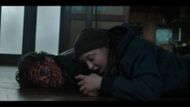The Last of Us Season 2 finally arrived on April 13, 2025, and ever since, fans haven’t stopped talking about the devastating event that defines it: Joel's death. From the beginning, HBO promised a story that wouldn’t pull its punches, and they delivered. Joel’s brutal, raw death doesn't just hit hard; it mirrors another unforgettable television moment: Hank Schrader’s death in Breaking Bad. These two moments, worlds apart yet strikingly alike, show how loss can reshape not only a character’s world but also how we, as an audience, experience it.
What makes these deaths linger long after the credits roll is how they break the typical mold. In most stories, beloved characters either find redemption or fall in grand, heroic gestures. Not here. In both Breaking Bad and The Last of Us, death comes without dignity or spectacle; it’s messy, sudden, and agonizingly real. And through that brutal honesty, both series reach something few others dare to touch: an emotional truth that leaves a scar.
Both Joel and Hank teach us that survival isn't a guarantee of safety. It's a temporary reprieve, a fragile pause before the inevitable. And when the end comes, it's not wrapped in cinematic glory but in the mundane horror of a reality that cares little for how much we've endured. Their stories echo because they remind us that pain, loss, and the randomness of fate are sometimes the only certainties we have.
Joel and Hank: two complex characters in ruthless worlds
Joel Miller isn’t your classic hero. When we meet him, he’s a shell of a man, hardened by a world gone wrong. Survival isn’t about hope anymore; it’s about getting through the next day. And yet, through Ellie, Joel begins to feel again, to believe there might be something worth saving. In Breaking Bad, Hank Schrader hides his wounds behind a loud laugh and a tougher-than-nails attitude. But beneath the surface, he’s a man fighting to stay afloat in a sea of corruption and violence. Both Joel and Hank are survivors, but survival leaves different marks on each of them.

Similarities and differences between Joel and Hank
Joel and Hank share a certain stubbornness, a refusal to back down from what they believe matters most. Joel fights for love. Hank fights for justice. Both are willing to risk everything, but their core motivations are different, and that’s what shapes their fates. Joel would tear down the world to protect Ellie. Hank, even staring down death, refuses to betray his values. In their final moments, these differences shine in the most painful, heartbreaking ways.
Character evolution over the seasons
Joel’s journey begins in grief and builds slowly toward hope, only to crash violently back into tragedy. His relationship with Ellie is what makes him human again, but it’s also what ultimately seals his fate. Hank’s arc is equally bittersweet. What starts as bravado peels away to reveal deep cracks: a man questioning his strength, his purpose, and ultimately his place in a world that doesn’t play fair. When both men fall, it doesn’t feel like a narrative twist; it feels like the final, inevitable breath of a long, painful story.
Both characters’ transformations show that growth often comes at a steep price. It’s not a neat, tidy arc with triumph at the end. It’s messy. It’s heartbreaking. And sometimes, just surviving long enough to change is its own tragedy.

Expectation versus brutal reality
We’re trained, as viewers, to expect miracles. Surely someone will save them. Surely some twist will come. But Joel and Hank aren’t spared. They’re ripped away from the story with brutal efficiency. No last speeches. No cinematic heroism. Just the cold, ugly reality of a world that doesn't care how much you meant to someone.
Their deaths remind us that, sometimes, the story isn't about a hero winning; it's about what’s left behind when the hero loses.
Consequences of past actions
Both men spend years making hard choices. Joel’s decision to save Ellie at the cost of humanity’s future leaves blood on his hands that can’t be washed away. Hank’s relentless pursuit of Heisenberg, even when every warning tells him to back off, draws the crosshairs right over him. Their deaths aren’t random. They’re the final echoes of every choice they made, every line they crossed, or refused to cross.

The helplessness of the survivors
Walter White, a man who built an empire out of control, watches Hank’s execution, powerless to stop it. Ellie, armed with a lifetime of survival instincts, stands paralyzed as Joel’s life is stolen from her. The tragedy isn’t just that these characters die. It’s that the people who love them have to live with the moment of their loss, forever frozen in helplessness.
There is no closure in these moments. Just an endless echo of what if, stretching into the lives of those who remain.
The cruel realism of both worlds
In Breaking Bad, dreams curdle into nightmares. Crime isn’t a game; it’s a slow death. In The Last of Us, hope is a flickering candle against a hurricane. Kindness gets you killed. Love gets you broken. Survival demands a part of your soul, and not everyone survives the cost. These stories don’t lie to us about what’s at stake. They force us to look, even when it hurts.

Narrative device as catalyst
Joel’s death isn’t just a plot twist; it’s the moment Ellie loses her innocence completely. Grief mutates into vengeance, and love becomes a weapon. For Walter, Hank’s death shatters whatever scraps of humanity he had left. His empire crumbles not with a bang, but with the hollow emptiness of knowing he destroyed everything he once claimed to protect. Both deaths ignite a downward spiral that makes the pain relentless and personal.
Similar cases in television history
Television loves to rip the ground out from under us. Ned Stark’s execution taught Game of Thrones audiences that no one was safe. Opie’s brutal murder in Sons of Anarchy cracked open Jax Teller’s soul. Glenn’s horrifying death in The Walking Dead turned hope into horror. These moments aren’t about shock value; they’re about reshaping the very DNA of the story through loss.

Audience and critical reception: a comparative look
Breaking Bad hit its creative and emotional peak during its final season, with episodes like Ozymandias often cited as the best television ever made. The Last of Us, in its first season, captivated an audience of 30 million viewers per episode and pulled critical acclaim for its unflinching emotional depth. With Season 2 premiering in April 2025 and Joel’s devastating death landing in the second episode, Through the Valley, the series isn’t just meeting expectations; it's daring to devastate them.
Audiences didn’t just watch these deaths. They felt them, deeply, painfully, as if they had lost someone real.
Conclusion: Pain as the driving force of the narrative
By reflecting the brutal heartbreak of Hank’s death, The Last of Us Season 2 doesn’t just tell another sad story. It rips into something deeper. It shows us that love can’t always save you. That sometimes, no matter how much you fight, the world takes what it wants. And that in these broken, beautiful stories, pain isn’t just inevitable, it’s transformative.
